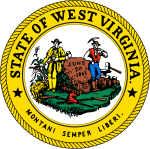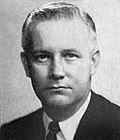| |||||||||||||||||
| |||||||||||||||||
 County results Randolph: 50–60% 60–70% Moore: 50–60% 60–70% 70-80% | |||||||||||||||||
| |||||||||||||||||
| Elections in West Virginia |
|---|
 |
The 1978 United States Senate election in West Virginia took place on November 7, 1978. Incumbent Democratic U.S. Senator Jennings Randolph was re-elected to a fifth term and a fourth full term in office, narrowly defeating Republican former Governor Arch Moore. Despite his defeat, Moore's daughter, Shelley Moore Capito, would later win election to this seat in 2014, becoming the first female Senator from the state. This was the closest of the five contests Randolph faced for a full term.

